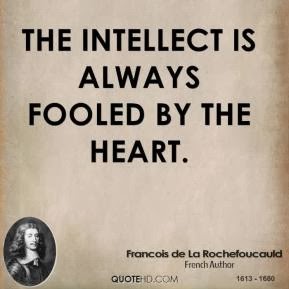Friday, 27 December 2013
Thursday, 19 December 2013
Altruism is an illusion - Richard Dawkins
Altruism is an illusion - Richard Dawkins
Biologists, philosophers, sociologists and psychologists have been telling
us for some time that there is no such thing as altruism and imply that it
is self-interest and not actually the benevolent helping of others.
Biologists, sociologists, philosophers and above all, psychologists, have
held to the "universal egoism" theory; that all apparent altruism is really
selfishness in disguise. Most arguments for altruism are based on ignorance
of the underlying reasons for behaving good towards others or are purely
semantic in nature, not logical.
The strong know fully well that altruistic behaviour is not what it seems. The weak help others in order to feel powerful and to have a sense of control over others. The strong, or the 'noble', do not delude themselves in this way.
The strong know fully well that altruistic behaviour is not what it seems. The weak help others in order to feel powerful and to have a sense of control over others. The strong, or the 'noble', do not delude themselves in this way.
Evolutionists have realised that animals and humans both use giving as a
form of exertion of power. Dominant animals who give most are also saying
they are the most powerful and can afford to give (time, food, etc) to
others. The dominant will tend to refuse aid given to them from anyone
inferior to them.
“The essence of Zahavi's idea is that advertisements of superiority are authenticated by their cost. Only a genuinely superior individual can afford to advertise the fact by means of a costly gift. Individuals buy success, for examples in attracting mates, through costly demonstrations of superiority, including ostentatious generosity and public-spirit risk-taking.” - "The God Delusion" by Prof. Richard Dawkins (2006)
“The essence of Zahavi's idea is that advertisements of superiority are authenticated by their cost. Only a genuinely superior individual can afford to advertise the fact by means of a costly gift. Individuals buy success, for examples in attracting mates, through costly demonstrations of superiority, including ostentatious generosity and public-spirit risk-taking.” - "The God Delusion" by Prof. Richard Dawkins (2006)
The reality of altruism to have two levels, and most disagreements are
between those who hold one definition of altruism, and those who hold
another. The two definitions are:
Surface-altruism: 'Altruism' occurs when one animal does something good for another, no matter what the underlying motive was. Altruism exists, therefore, on this shallow, or surface, level.
Motive-altruism: As there are underlying motives to 'altruistic' behaviour, 'altruism' is an illusion (because we often don't know our own ulterior motives, such as kin selection behaviour).
People behave altruistically for a number of selfish reasons. We are programmed genetically to behave in a way conducive to the sociability of the species: This unconscious species-instinct is the closest thing we have to true selfless altruism. In nearly every other conscious sense, altruism is an illusion. We behave well because social good behaviour fires off pleasant neurochemicals in our brains (the pleasure reward), because consciously or unconsciously we want others to see us as a good person (the social reward) or to feel good about ourselves (for pride and self-esteem). Altruism is image and illusion.
Richard Dawkins, the great evolutionary biologist, argues that we should educate people about the true nature of altruism. He is the author of "The Selfish Gene", and says that when we understand our motives better, we are better equipped to behave well, and overcome the ethnically-biased altruism that we are born with.
Surface-altruism: 'Altruism' occurs when one animal does something good for another, no matter what the underlying motive was. Altruism exists, therefore, on this shallow, or surface, level.
Motive-altruism: As there are underlying motives to 'altruistic' behaviour, 'altruism' is an illusion (because we often don't know our own ulterior motives, such as kin selection behaviour).
People behave altruistically for a number of selfish reasons. We are programmed genetically to behave in a way conducive to the sociability of the species: This unconscious species-instinct is the closest thing we have to true selfless altruism. In nearly every other conscious sense, altruism is an illusion. We behave well because social good behaviour fires off pleasant neurochemicals in our brains (the pleasure reward), because consciously or unconsciously we want others to see us as a good person (the social reward) or to feel good about ourselves (for pride and self-esteem). Altruism is image and illusion.
Richard Dawkins, the great evolutionary biologist, argues that we should educate people about the true nature of altruism. He is the author of "The Selfish Gene", and says that when we understand our motives better, we are better equipped to behave well, and overcome the ethnically-biased altruism that we are born with.
We should educate people about the true nature of altruism and when we
understand our motives better, we are better equipped to behave well, and
overcome the ethnically-biased altruism that we are born with. - Richard
Dawkins
Subscribe to:
Comments (Atom)








